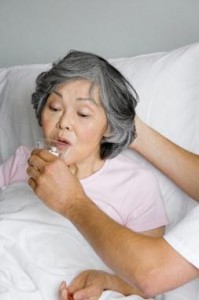Blog
Basic Safety Tips for the Active Senior
Posted by Scott Cantin in caregiving tips, elderly care, Senior Health | 0 comments

This week’s focus is staying safe while exercising. The first thing any senior citizen should do before exercising is to check with their doctor to see if he or she is healthy and fit enough to work out without getting hurt. Some people may have certain limitations that prevent them from being mobile in a safe manner. Your doctor will know for sure whether or not you can put the strain on your body that comes with even the simplest of exercises.
Exercising is considered by most professionals to be the best thing an elder can do to delay some of the side effects that come with aging. If it is done correctly and in a safe way, it can even add up to two or three years onto your lifespan. On top of improving overall general health, regular exercise can help lower your blood pressure and cholesterol, prevent diabetes, depression, anxiety, and insomnia, as well as certain cancers. Balance and strength can also improve, lowering your risk for an accidental fall.
Dehydration in Ederly: How to avoid and get noticed about it
Posted by Scott Cantin in Senior Health | 0 comments
In order to function properly doing organic tasks like, for example, regulate body temperature through sweating, maintain blood pressure, and eliminate bodily waste it is neccesary taking an adequate amount of fluid for the body.
Dehydration occurs when a person loses more water than they drink. In general, a human can survive for only about four days without any fluids. If severe enough, dehydration can lead to confusion, weakness, urinary infections, pneumonia, bedsores in bed-ridden patients, or even death avery.
There is a high risk for Dehydration in elderly people. High blood pressure pills or anti-depressants, are diuretic; also some medications may cause patients to sweat more.
Get noticed for signs of illness in a loved one can be hard. Some signs show up quite clearly, while others have a more subtle effect on daily living.
We have to consider too that a person’s sense of thirst becomes less acute as they age and caregivers couldn´t sense that they need fluids. For this reason, dehydration, depending on the severity, sometimes creates only small telltale signs while having a big effect on the body, especially in the elderly.Illness, especially one that causes vomiting and/or diarrhea, also can cause elderly dehydration.
That normal level of hydration varies widely from person to person. Contrary to the mantra that everyone should drink eight glasses of water every day, Kenney says there is nothing scientific to back that up. “People misinterpreted that to be, it had to be liquid and it had to be water,” he says.
Doctors recommends monitoring body weight to keep track of hydration levels. To monitor body weight, one should be weighed every morning. If they’ve lost two pounds or more from the day before, and especially if they feel thirsty or have a headache, they’re probably dehydrated.
Perhaps because of that delay in diagnosis, elderly dehydration is a frequent cause of hospitalization (one of the ten most frequent admitting diagnoses for Medicare hospitalizations, according to the Health Care Financing Administration), and it can be life-threatening if severe enough.
Other signs of dehydration to look for: confusion, problems with walking or falling, dizziness or headaches, dry or sticky mouth and tongue, sunken eyes, inability to sweat or produce tears, rapid heart rate, low blood pressure or blood pressure drops when changing from lying to standing, and constipation or decrease in urine output. Also check for a decrease in skin turgor-pull up the skin on the back of the hand for a few seconds; if it does not return to normal within a few seconds, the person is dehydrated.
Eat plenty of vegetables and fruit – Fruits and vegetables can contain more than 75% water as well as much needed vitamins and minerals.
Drink sparkling water or fruit juice – These beverages are a sweeter alternative to water, while still avoiding excess sugar and calories.
Avoid salt – Salt greatly increases your chances of dehydration. If you choose to use salt, try sea salt or lower sodium salt.

